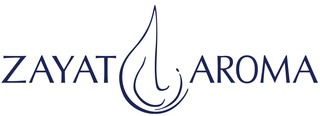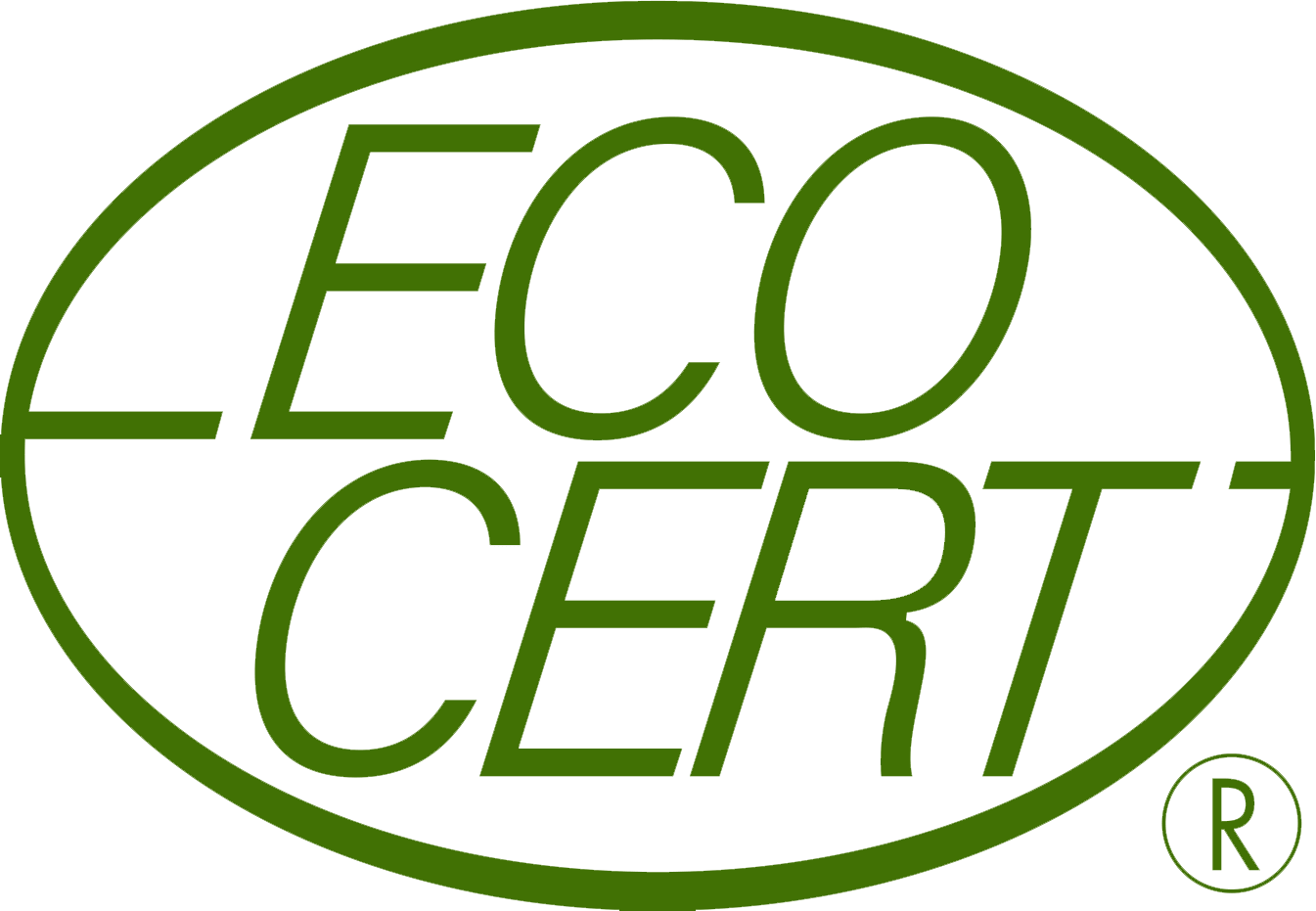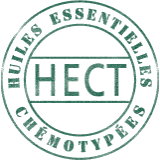Mikaël Zayat
Error message
The page you requested does not exist. For your convenience, a search was performed using the query item hv6455337. Not quite what you were looking for? Other results.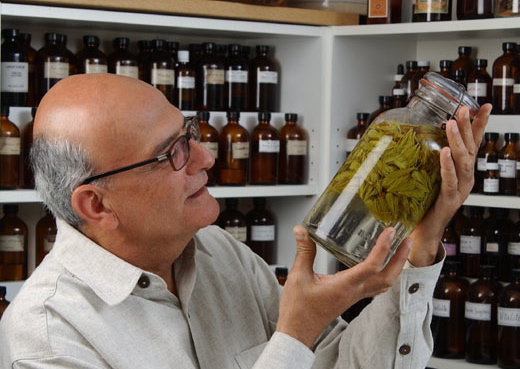
Maceration of Canada’s Organic Balsam Fir Buds
1. Bio
Born in Egypt, Mikaël Zayat, Alchimist by Essence, has spent over 30 years mastering the art of distilling aromatic plants to extract their essences (essential oils). He is a world renowned pioneer in holistic aromatherapy and in the distillation of plants native to Quebec. His aromatic creations and synergies are appreciated all over the world for their numerous qualities.
For thousand of years, the essences and extracts of aromatic plants, commonly referred to as essential oils, have held an important role in the healing of the body, mind and spirit. Less than 10% of the world’s vegetation contain aromatic molecules and even fewer are can be extracted into essential oils. These precious liquids are the very essence of the plant, some say the spirit, defining it, protecting it, and giving each its own unique character. Prized and valued, these plants and essences have been used for centuries in rituals, ceremonies and to purify sacred places.
We can also assume that the term “perfume” comes from the french “par fumé”, literally “by smoke” referring to the traditional burning of these aromatic plants to purify, deodorize, and “perfume” places and the people who use them.
Spiritual Aromatherapy
By Mikael Zayat
I recall being a young boy in times of spiritual celebration, looking at the smoke from the burning incense….smelling the pungent aroma, watching the white smoke rising from the incense burner. It was uplifting. I felt like the smoke was carrying our souls with it. Our spirits wanted to rise with the smoke soaring up the heavens. There was a sense of unity with all of those gathered around us. The products were extracted from various trees, frankincense, etc…and the memory, the feeling of goodwill and safety returns whenever we encounter these fragrances today, in incense and oils.
As an adult, one day I was in the mountains of Mexico near Popocatepetl far removed from pollution. I was visiting a friend and he took me to a small shrine where I met a master, a leader named Guru Macelli who was giving a meditation course. I sat and listened to his lecture. He was a very sensitive man, taking special care with each little object. He discussed incense and its importance to people throughout the ages.
Guru Macelli went on to say that now much of the incense on the market is manufactured from synthetic fragrances. Today, many people, when buying incense, are not careful to look at the origin. They just smell the box or envelope….If it smells like strawberries or vanilla, things that they like, they buy it. But these are just pieces of wood with a wood powder attached to it – dipped into synthetic fragrances….When these products burn, they do just the opposite of what we are looking for…they drag us down instead of lifting us up.
Long exposure to artificial products has the potential to be harmful. These can be found in many areas in our homes…candles, incense, cleaning products, soaps and many perfumes. The base of the scent is extracted from a petroleum product. Synthetic incenses have been tested in temples in India and found to be more toxic and more pollutant than the smoke from cigarettes. They try to fool us, but when you burn these over a period of time, they might make you feel ill…they tend to make you feel low…People don't understand this.
There is a truth in essential oils and aromatherapy. I believe that it is my responsibility, my duty, to educate people to the importance of pure essential oils in our lives. This is my mission.
Mikael Zayat is a distiller of essential oils in Quebec . He has been doing research for since 1982.

2. The Essence of an Alchemist
Distinguished descendant of oil-producing ancestors, Mikaël Zayat now transforms the unctuous liquid into perfume.
Calming, energising, or inspiring decoctions…everything to breathe in health.
Behind his home, at the foot of Bromont’s mountain, Mikaël Zayat bathes in milky light. Bent over his artisan’s still—his crucible—he distils branches or flowers (spruce, goldenrod, fir…) extracting a fragrant, toning, or relaxing essential oil. With childlike manners and slow movements, it seems as though, for him, time escapes worldly constraints.
He adores hemlock spruce, a conifer whose foliage, is as gentle to the touch as “a mother’s love,” its essence helps people to overcome the difficult stages in life. He readily collects it along the forest’s edge, just like St-John’s wort with its brilliant yellow flowers and antidepressant virtues.
In his basement, its white walls bedecked with books, test-tubes, and hundreds of brown bottles, he concocts mysterious potions for use in calming nerves and softening skin. We are in his “wine cellar.” Name an essence and chances are he has it in stock thanks to a network of European and North-African artisan friends who mail him rose water, paperbark tree oil, or shea butter.
His family name comes from an Arabic word which means “oil manufacturer.” Over the 4000 years of Damascus’ existence, Zayats pressed olives. Emigrated to Egypt a century ago, they scattered toward other occupations. But it was in Quebec, after Mikaël arrived in 1970 to complete a thesis in education, that he discovered, with great wonder, the many branches of traditional medicine. And he fell in love with the country.
After studying with a Native American, and later with an aromatherapist in France, Mikaël Zayat began distilling and combining flower and tree essences. But after 20 years, his experience is not so much scientific as it is spiritual and sensual. “To understand the depth of feeling ina loveletter, it is not enough to simply analyse the quality of the ink and paper…”
Step by step, he travels his luminous universe. The teacher in him deplores modern cultures’ lack of ambition, “There we are, fighting to get a seat on the bus, but we forget to ask if there is a driver or if he knows where he is going. In education, we speak of methods, but rarely of motive. What is our intention through all of this? I hope that my sons, who are seven and nine years old, will move closer toward life, rather than escaping it through work or drugs…One must cultivate one’s inner garden, and see that every human is here to share. We are but one…”
He does not make a mystery out of his spiritual roots. His serenity is inspired by St Francis of Assisi and by his prayer, “Lord, make me an instrument of your peace.
Where there is sadness, let me sow joy…”
“In the human body,” says he, “The alchemist fulfills himself through joy.” And how does one become joyful? “One must decide to be joyful. In every instant. Try it!”
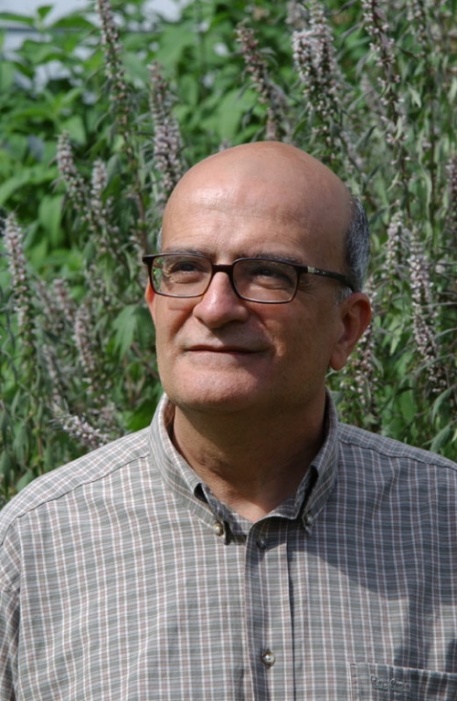
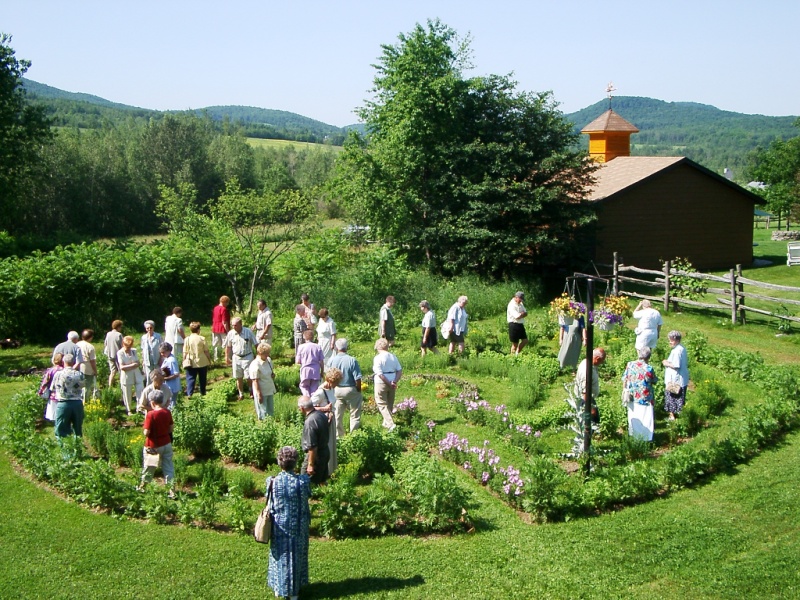
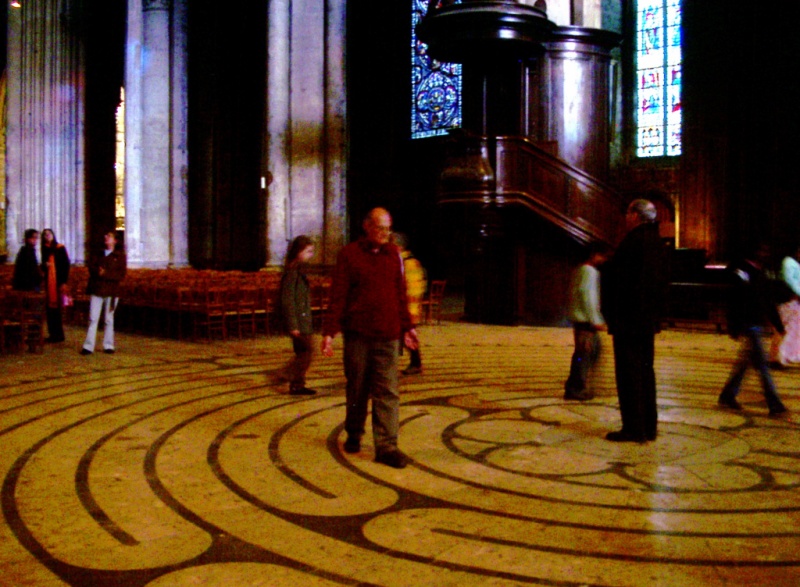
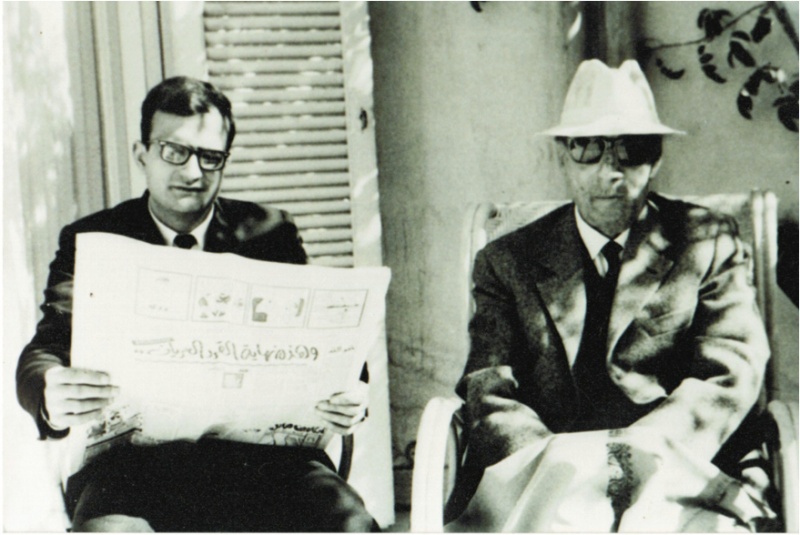
In the late 1960s, Mikael was the private secretary of renowned poet, philosopher and writer Dr. Taha Hussein, who was Egypt's minister of education and head of the Arabic language institute.
Together, they travelled in North Africa and Europe.
4. Articles
“I believe that education goes from the womb to the tomb”
Mikaël Zayat
Written by Nicolas Fonda
Published in the Records Newspaper, Septembre 2010.
Bromont — A school need not be multi-storey brick building crammed with computers. Indeed, in this case the school is a modest suburban bungalow, hardly different from its neighbours save for the few cars parked in front of the house and a back yard that features a tepee and a small labyrinth. This is the home of Mikaël Zayat and his family.
When I finally meet him, both the man and his work prove to be a surprise.
What I had first heard of Mikaël Zayat was that he produced and sold essential oils. Eventually I will learn that he is the founding president of the Alliance of Quebec Essential Oil Producers. There are some 20 small firms around the province which produce and sell essential oils. For his part, Mikaël distils or extracts essences from some two dozen different trees, shrubs and plants which are commonly found in the fields and forests around Townships. As well he imports hundreds of essences from around the world. Appropriately enough, his last name, Zayat, comes from an Arab word which means maker of oil.
Yet, when we eventually sit down to talk, it’s not aromatherapy which is on his mind, it is education. One of the first things he says is, “I am not a doctor, although I have a brother who is a doctor. I am a teacher. I teach people how to stay healthy.”
If the word teacher evokes the image of a somewhat harried individual standing in front of a large group of children or adolescents crammed into a classroom too small for the actual number present, Mikaël Zayat will tell you that he’s been there and done that.
Born in Egypt almost 65 years ago, Mikaël Zayat trained to be a classroom teacher. After hitchhiking around many of the countries that border the Mediterranean Sea, he came to Canada and enrolled at the University of Ottawa with the intention of pursuing a PhD in Education. His particular interest was comparative education and he worked closely with his thesis director, Dr. Athanas Ramunas, to the point of translating into English a book entitled Comparative Education in the Teaching Profession written by Dr. Paplauskas Ramunas. However, a couple of factors, including the premature death of Dr. Ramuas, led Mikaël Zayat to eventually abandon his thesis and his doctorate.
By the early 1980s, by which time he had gained experience teaching at several different levels from Grade One to University courses and that included one class of 40 youngsters deemed to be juvenile delinquents, Mikaël Zayat decided to move on from institutional education.
Over a relatively short period of time a couple of significant things occurred in his life. One was that on a train ride to Trois-Rivières he met Katherine Courchesne, the woman he eventually married and with whom he has raised two children into adulthood. The other is that he fell seriously ill and was cured not by surgical intervention but by herbs and diet.
It was thanks to his wife that Mikaël Zayat discovered the Townships. “I’ve been in the same house for the last 20 years,” he says. “I love the area—the old name of West Shefford may be more attractive than the current name of Bromont—but it’s beautiful here. I appreciate the fact that it‘s a bilingual area. Language carries culture, and I learn more about my own culture when I compare it to another culture. Through diversity we acquire unity and come to understand ourselves. Diversity is important in Nature and it’s equally important to human society. Here in the Townships the two cultures work together so beautifully.”
Mikaël Zayat works from home and the entire basement floor is given over to his teaching. The largest of the rooms, the one you enter as you come down a flight of stairs, evokes an impression of abundance. The room is full, almost to overflowing. Three of the walls are covered with floor-to-ceiling bookshelves—a library of some 2000 books, Mikaël estimates. In the one corner devoid of books there are smaller shelves holding, among other things, some 400 small bottles of essences. The floor space is largely taken by an oversized table piled high with books and papers. There’s a small reading corner with a very attractive and unusual wood chair, while in another corner you’ll see a brightly painted, old-fashioned pupil’s desk and unusual toys for balance and co-ordination.
Another room, much smaller, is equally packed with musical instruments, of which only a couple of flutes and a guitar are easily recognizable. The room is dominated by a relatively large, short-legged, lustrously-finished, hardwood table. It’s not immediately apparent that the table is a musical instrument. On the underside of the table top are tuned strings. You can stretch out on the table, wrap your arms under it and, as you pluck the strings, feel the sound as well as hear it. There are bells, Tibetan singing bowls which, when rubbed, can produce haunting cries, tuning forks, spoons, native-style drums and a drum-like instrument that creates sounds like those of waves washing up on a beach.
There is also a small laboratory and a meditation room where two small sofas are surrounded by icons or symbols from a dozen or more major world religions. “Religion,” he says, “is connecting with the god within.”
Perhaps typical of the people who come to see Mikaël Zayat, are a woman and her son who arrive at the house shortly after I do. The boy is 10 and has been having trouble sleeping. They have come before and Mikaël speaks with them briefly. At one point he asks what kind of lights the boy has in his room. The energy-efficient neon lights highly touted by Hydro Quebec affect some people adversely, Mikaël tells them. There are people, and Mikaël avows he is one of them, who are better off using the older style incandescent bulbs. Sometimes even a small change or adjustment can make a great deal of difference.
Mikaël shows the boy a balancing game and the mother starts perusing the library shelves. They will still be there when I leave.
“People of all ages come here for advice,” Mikaël says. “I believe that education goes from the womb to the tomb. Education is the key, and education is not just instruction or training or drills. Education is the positive interaction of the whole person with the whole environment. What we have to learn is to learn to be. When you are struggling with something, when there is a problem, it is your inner self that will eventually find the solution. What I teach is intuition. There is something much greater that guides us through our lives.”
“Plants are our best teachers,” he continues. “St. Bernard, in one of his writings, points out that trees can teach us what no other master can. Plants teach us to be in contact with our souls, our spirits. It’s not a coincidence that alcoholic drinks are referred to as spirits—all our alcoholic drinks come from plants. It is only in excess that alcohol does such harm.”
For his part, Mikaël Zayat extracts essences from plants because they too can be part of a healing process.
He digresses briefly to explain the etymology of the word. Essence, comes from the Latin for “to be” and when he extracts aromatic essences from balsam or hemlock, he is collecting something akin to the spirit, the key component of the plant. “Eastern hemlock is a tree I particularly like,” he says. “It’s top always points to the east, and its essence is used in combating tuberculosis.”
“The term ‘essential oils’ is misleading,” he points out. “What is extracted is not oil at all. There are no fatty acids involved. Rather, we get floral water and a very small amount of aromatic essence which floats to the top, a little like an oil.”
“Aromatic essences are regularly used on a commercial basis,” he continues. “They’re used in products like toothpaste and laundry soap. Plants protect themselves with their essences, which is why, among other things, they help control bacteria.”
Mikaël Zayat learned how to extract essences from a French aroma therapist. The process involves allowing steam to pass through foliage or branches and then condensing the steam to draw off the floral water. He points out that he has learned much as well from Native Americans, and from the descendants of early settlers who would do things like hang camphor around their necks to avoid colds.
For Mikaël Zayat, the teacher, aromatherapy—like sound therapy—is simply one more potentially useful stepping stone on the path to education. Education is also the motivation for an upcoming project. “It’s time for me to write a book,” he says, “to pass on some of what I have learned in my lifetime.”
The Essence of an Alchemist
Translated from the text “Alchimiste par essence,” by Michel Saint-Germain, Elle-Québec, February 1998, no102
Distinguished descendant of oil-producing ancestors, Mikaël Zayat now transforms the unctuous liquid into perfume. Calming, energising, or inspiring decoctions…everything to breathe in health.
Behind his home, at the foot of Bromont’s mountain, Mikaël Zayat bathes in milky light. Bent over his artisan’s still—his crucible—he distils branches or flowers (spruce, goldenrod, fir…) extracting a fragrant, toning, or relaxing essential oil. With childlike manners and slow movements, it seems as though, for him, time escapes worldly constraints.
He adores spruce, a conifer whose foliage, is as gentle to the touch as “a mother’s love,” its essence helps people to overcome the difficult stages in life. He readily collects it along the forest’s edge, just like St-John’s wort with its brilliant yellow flowers and antidepressant virtues.
In his basement, its white walls bedecked with books, test-tubes, and hundreds of brown bottles, he concocts mysterious potions for use in calming nerves and softening skin. We are in his “wine cellar.” Name an essence and chances are he has it in stock thanks to a network of European and North-African artisan friends who mail him rose water, paperbark tree oil, or shea butter.
His family name comes from an Arabic word which means “oil manufacturer.” Over the 4000 years of Damascus’ existence, Zayats pressed olives. Emigrated to Egypt a century ago, they scattered toward other occupations. But it was in Quebec, after Mikaël arrived in 1970 to complete a thesis in education, that he discovered, with great wonder, the many branches of traditional medicine. And he fell in love with the country.
After studying with a Native American, and later with an aromatherapist in France, Mikaël Zayat began distilling and combining flower and tree essences. But after 20 years, his experience is not so much scientific as it is spiritual and sensual. “To understand the depth of feeling in a love letter, it is not enough to simply analyse the quality of the ink and paper…”
Step by step, he travels his luminous universe. The teacher in him deplores modern cultures’ lack of ambition, “There we are, fighting to get a seat on the bus, but we forget to ask if there is a driver or if he knows where he is going. In education, we speak of methods, but rarely of motive. What is our intention through all of this? I hope that my sons, who are seven and nine years old, will move closer toward life, rather than escaping it through work or drugs…One must cultivate one’s inner garden, and see that every human is here to share. We are but one…”
He does not make a mystery out of his spiritual roots. His serenity is inspired by St Francis of Assisi and by his prayer, “Lord, make me an instrument of your peace.
Where there is sadness, let me sow joy…”
“In the human body,” says he, “The alchemist fulfills himself through joy.” And how does one become joyful? “One must decide to be joyful. In every instant. Try it!”
MIKAEL’S FAVOURITE MIXES
RESPIRATORY DIFFICULTIES: Conifers.
“Everybody knows eucalyptus which is found in commercial ointments to relieve breathing difficulties. But conifers are much closer to us and in my view, much more efficient. In this way has the Christmas tree tradition been carried on. Selecting a great fir, we would place it in the main room, decorating the tree with candles so as to help release its essence. The odours protected the household from epidemics which flourished when winter had its firmest grip on the land.”
RELAXATION: Spruce, lavender and sage. Spruce is the all-purpose of essential oils—everyone should have a bottle close at hand. It is of course a sedative and a natural anti-depressant, but its antiseptic properties make of it a great ally in the treatment of burns; also, it stimulates the immune system.
INDIGESTION: Peppermint (or rub it on the temples in case of headache.)
MUSCLE TONE: Chewing St-John’s wort https://zayataroma.com/en/+item/hv6455337 is a traditional Quebecois and European remedy. Mikaël Zayat mixes little yellow flowers with olive oil, a mix he then exposes to sunlight for several months. The resulting reddish mixture can be rubbed over the region of the kidneys to give an extra kick-start to the body before any special effort. We use it preferably in combination with fir essence.
THE SKIN: Rose and shea butter. “Shea butter is a paste extracted from the nuts of a tree from West Africa. It regenerates the skin thanks to the vitamins A, D and E which it contains naturally. Shea butter protects, softening and relaxing the epiderm, fights wrinkles and dehydration without making the skin oily. It is firming and is convenient for all skin types, even the most sensitive.”
TRAVEL: “Everything depends on where we’re leaving and where we’re going. If going to Europe, it would be good to take a mix of spruce, lavender and sage. If going to India, spruce and palmarosa. Going South or to the Middle-East, spruce and citrus. To Vancouver, spruce and cedar. Spruce favours a gentle passage and the other plants allow the body to prepare toward the energy of the destination point. It is best to use these oils two or three days before departure. Once arrived at the destination, we can stimulate ourselves by inhaling black spruce.”
A GOOD SLEEP: Spruce, lavender, and mandarine. Soak a cloth or spray your pillowslip. Mandarine alleviates problems of insomnia, nervousness and anxiety.
Spiritual Aromatherapy
By Mikael Zayat
I recall being a young boy in times of spiritual celebration, looking at the smoke from the burning incense….smelling the pungent aroma, watching the white smoke rising from the incense burner. It was uplifting. I felt like the smoke was carrying our souls with it. Our spirits wanted to rise with the smoke soaring up the heavens. There was a sense of unity with all of those gathered around us. The products were extracted from various trees, frankincense, etc…and the memory, the feeling of goodwill and safety returns whenever we encounter these fragrances today, in incense and oils.
As an adult, one day I was in the mountains of Mexico near Popocatepetl far removed from pollution. I was visiting a friend and he took me to a small shrine where I met a master, a leader named Guru Macelli who was giving a meditation course. I sat and listened to his lecture. He was a very sensitive man, taking special care with each little object. He discussed incense and its importance to people throughout the ages.
Guru Macelli went on to say that now much of the incense on the market is manufactured from synthetic fragrances. Today, many people, when buying incense, are not careful to look at the origin. They just smell the box or envelope….If it smells like strawberries or vanilla, things that they like, they buy it. But these are just pieces of wood with a wood powder attached to it – dipped into synthetic fragrances….When these products burn, they do just the opposite of what we are looking for…they drag us down instead of lifting us up.
Long exposure to artificial products has the potential to be harmful. These can be found in many areas in our homes…candles, incense, cleaning products, soaps and many perfumes. The base of the scent is extracted from a petroleum product. Synthetic incenses have been tested in temples in India and found to be more toxic and more pollutant than the smoke from cigarettes. They try to fool us, but when you burn these over a period of time, they might make you feel ill…they tend to make you feel low…People don't understand this.
There is a truth in essential oils and aromatherapy. I believe that it is my responsibility, my duty, to educate people to the importance of pure essential oils in our lives. This is my mission.
Mikael Zayat is a distiller of essential oils in Quebec . He has been doing research for over 25 years. He is the president of Foundation du Havre, a foundation dedicated to promoting a healthy, balanced life-style.
An Introduction to Spiritual Aromatherapy
By Mikael Zayat
In the highly developed, technical world we live in, we have come to depend on many things that are not essential. Essential oils go to the essence of things. We are here in a garden created especially for us to be shared and enjoyed. We experience everything through our senses -touch, taste, smell, seeing and hearing- and through these we truly come to know our environment. There is a type of veil produced by our senses, our intuition, that is projected outward, and it is only by following our instincts and coming to trust ourselves that we obtain true knowledge.
The size and magnitude of this creation is beyond anything that we can comprehend. One cannot visit the garden all at once. You can view it all from above, but from that level, you are not able to see all of the different stages of growth and the individual beauty of each flower, the subtle differences (colors, scents, the shape of the leaves) that make each one unique. Some of the most fragile and delicate flowers are so tiny that you ave to be a small child to even notice them -under the shrubs and bushes. Usually, we are so busy looking ahead and above, we don't notice the small gems on our path as we walk on them and crush them, unaware of the loss.
According to David Stewart, smell is the only sense directly connected to the central brain, rather than the frontal lobes. Because that part of the brain deals with nonverbal and emotional functions, he says, "our first response to anything we smell can be emotional rather than rational." In other words, oils can also bring about emotional healing and increase spiritual awareness in ways we can't fully understand.
Alchemy is the transformation of our heaviness and darkness into light. Everyone has the potential to be an alchemist. It is through our heaviness that we come to know our lessons. We need to have this part of the balance in our lives so that we may experience the creativity of transformation. It is only with love and joy that we can do this, not by following any formulas or chemical procedures. We must be present in a field of freedom to accomplish this.
5. Conferences
Mikael offers conferences, lectures, seminars and courses in aromatherapy and other topics related to natural heath at his home in Bromont, at the Garden of Life Academy in Granby and around the world.
List of past conferences and playshops
01/05/99 Conférence : Journée de l'Infirmerie
Ordre régional des infirmières et infirmiers de la Montérégie
09-05-1997 Colloque : Trois rivières sur le parasitose
Koncept total, Trois Rivières
23-05-1998 Colloque : Trois Rivières sur la Prostate
Koncept total, Trois Rivières
16/17-10-1997 Colloque : La Mort, parlons en
Coopérative funéraire de l'Estrie, Sherbrooke
17/18-10-1996 Colloque: Tendre la main à la vie... Éveiller les forces du cœur
Coopérative funéraire de l'Estrie, Sherbrooke
15-11-1996 Colloque : Faire équipe en soin palliatifs
Regroupement en Soins Palliatifs, Secteur Sud Ouest Montréal
17-11-1995 Conférence : Colloque ''fin de vie de qualité, Mythe ou défi''
Regroupement en Soins Palliatifs, secteur Sud Ouest Montréal
01/05/00 7éme congres international de médecine naturelle
Ordre de thérapeutes du Québec, Montréal
01/09/98 Table ronde : Le développement des plantes médicinales de cueillette et de culture certifiées biologiques
Ministère Agriculture Pêche Alimentation Québec
01/10/98 Symposium :Accompagnement à la naissance
Symposium :Salon des médecines douces, Cégep de Shawinigan
02/10/98 Symposium :Ré-apprivoiser la mort
Salon des médecines douces, Cégep de Shawinigan
01/05/97 Symposium :La féminité est-elle l'avenir de l'humanité
Salon des médecines douces, Cégep de Shawinigan
01/05/95 Symposium : Le Pont-Changement d'Air (Ère)
Salon des médecines douces, Cégep de Shawinigan
Avril-Mai 1994 Symposium : Enhanced Living
Montréal
2000-05-01
Granby
1997-1998-Octobre 1999-2000 Salon Deuxième Jeunesse
APRAS
Colloque et exposition : Manger Santé
Décembre 1999-Décembre 1998-Septembre 1996, Novembre 1995 Salon des artisans
Bromont
Novembre? Salon des artisans
Granby
01/02/00 Salon Baby Boomers
Nov 99, Nov 98, Mars 98, Mars 96, Mars 96, Mai 95, Mars 95, Nov 94, Nov 93 Salon International de l'Esotérisme
01/04/96 Salon des Thérapies alternatives
1995 Colloque : L'union fait la force
01/12/94 Colloque : L'union fait la force
Trois Rivières
01/11/93 Colloque : L'union fait la force
Hull
1992 Salon Nouvel Age
Rallye Touristique Granby- Bromont
01/03/00 Salon de la Féminité (Magazine Guide Ressource)
1992 Colloque : Les thérapies douces
LICA : Laboratoire d'interventions cliniques Appliqués/ Chevalier de Lirimier
1990-1995 Symposium du Saguenay Lac Saint Jean
Cégep Jonquière
Mars-Avril 1993 Salon des Médecines Douces
Paris, France
1998-1999 Symposium : International Scientific Aromatherapy Symposium
Grasse, France
1998 International Herbal Medecine
01/04/00 Conférence
Christopher Starvov, Jamesburg
01/02/00 Conférence
AFEAS Saint Isaac, Asbestos, Quebec
01/02/00 Conférence
École Massothérapie Saute Globale du Québec, Drummondville
1999 Conférence
Agriculture Pécherie Alimentaires
07-février- 2000 Conférence
Résidence de a Province, Montréal
01/03/00 Conférence : Diapason
Résidence Saint Dominique, Hopital de Cowansville
1999 Conférence Baltimore
Baltimore
01/05/00 Conférence Saint Rose
CLSC
30/03/2000 Salon de la Féminité (Magazine Guide Ressource)
2000/01/26 Conférence CACBA, Comité d'animation culturelle de la Bibliothèque d'Anjou
1999 International Anomatherapy Confence and Trade Show in Canada , Toronto
1999/09/01 International Aromatherapy and Tutors Association Oakville, Ontario
1997 NAHA
1997 Institut de Coopération International
Université Ottawa
1999 Institut techno agro-aliment Saint Hyacinthe
1998 Rencontre Sherbrooke Hervé Langlois Atelier
1997 Tricho-Dermie Beauport
1996 Séminaire/ Les conifères. Bromont
1996/12/11 Conférence à Richelieu Louise Joly
1996 A.P.A.C
1996 Menoir Cartierville
1995 Académie Phytotherapie
1994 Résidence Berthiaume Du Tremblay
1993 C.A.C.D, Cours pour les infirmières. Centre Hospitalier Sherbrooke
1993 Projet Aromathérapie du CACD Conférencier, rencontre multidisciplinaire
1995 LICA, Laboratoire d'interventions Cliniques Appliquées
6. Mikaël Zayat's Creations
Subscribe to our newsletter here!
All rights reserved © 2024 - ZAYAT AROMA
Terms & conditions | Security & privacy
